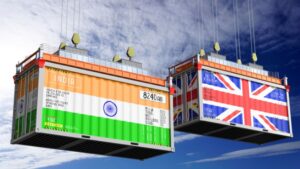In May this year, initially two states – UP and MP – announced sweeping reforms to support businesses grappling with the crippling impact of the novel coronavirus. Soon after, Maharashtra, Rajasthan, Gujarat, Goa, Uttarakhand, Assam, Punjab, Haryana and Himachal Pradesh also came up with reforms, heating up the debate on changes in labour laws. Fearsome of the implication of the reforms, 10 central trade unions lodged a joint complaint to the International Labour Organisation (ILO) to take up the issue with the Indian Government. What also followed is a series of appeals to the government to re-look at the reforms and ensure that workers’ rights are not compromised on. One such appeal by Women in Value Chains that is associated with numerous other NGOs including names like SEWA Bharat, GPN Studies, Traidcraft India, HomeNet South Asia, and Fair Wear Foundation, is reproduced alongside.
The real question is – are the proposed reforms anti-labour and arbitrary? While a section of people thinks so, there are equally strong voices rooting for the change.
What the pro-change voices have to say
One of the biggest assumptions in business is that any reform that is positive to employers and aimed at enhancing business is definitely negative to the interest of workers. This single thought process has been a deterrent to any reform in the labour laws and continues to influence attempts to ease hurdles to get business on its feet in these unprecedent times that require extraordinary effort.
One of the biggest arguments against the reforms is that it was taken arbitrarily by the states through ordinance without any consultation or debate with various stakeholders like unions, buyers and worker associations. The pro-change lobbyists argue that first and foremost, the reforms are not exclusively targeted at labour and are focused on enhancing ‘ease of business’ which is critical for the businesses to get up and running, so sweepingly calling them labour reforms is misrepresentation. Also, the reforms, though wide, have left untouched the bases of labour law – minimum wages, bonded labour and provisions related to children and women.
Secondly, the need for reforms including industry demands on the required changes have been in debate for years and since urgent extraordinary measures are required today, the changes have been fast-tracked for a short period of time – 3 years in the case of UP and 1,200 days in the case of MP; enough to allow the industry the breathing space from the inspector Raj to get back to work without interference.
The argument is simple – if the industry is not on its feet as soon as possible, how will they generate employment and support workers with wages and salaries to run their homes? There is a real fear of the economy collapsing, if the industry does not get the support to tide over the crisis.
The third important premise for the reforms that is supported by the industry and pro-change activists is that building flexibility in business operations does not translate into worker abuse. The reality remains that the employers need the workers as much as the workers need the employers. Both of them have to mutually respect each other and build a relation of trust. It is being strongly argued that no employer will exploit his worker and spoil his trust with the community, as it is not about today, but future growth.
Pro-change supporters forcefully argue that – if the business needs 20 workers, why is the employer forced to retain 40, when he hardly has the money to support the 20 required ones? This is even more relevant in a sector like garment, which is seasonal in nature. While in one season, a company may be having orders in millions, but the next season, not even a single piece may come in. This is the nature of the business, so how can these factories be expected to hold on to all the workforce throughout the year!
The only solution is to have a national security scheme to cover the back of workers in such times, ensuring worker livelihood without putting pressure on individual companies to continue paying workers that are not adding value to the operations.
The argument against the reforms
It is prudent to mention here that the ordinances have gone to the President for signatures, but have not been attained yet. In the meanwhile, labour associations have written to the ILO claiming that the reforms are in violation of the ILO convention to which India is a signatory. The thrust of the objects is that the ordinances for change are sweeping and will tarnish the image of the country as a labour-friendly and ILO compliant industry, and hence defeat the purpose of the reforms to encourage investment in the country for manufacturing. The argument is that why would any international entity invest in a country where labour is at the risk of exploitation.
It is being pointed out by various labour unions and labour right associations that the reforms empower the employers to hire and fire workers at their convenience, freeze collective bargaining rights, undo the rights of occupational safety and health, and without the labour department’s intervention in the establishments for any inspection of the basic bare minimum needs for decent working conditions, etc. during the said period, the workers are completely at the mercy of the employers.
The flexibility to increase working hours as announced by the State of UP to a maximum of 11 hours was based on mutual agreement and not by force according to the state, but the same has, however, since been withdrawn following a notice from the Allahabad High Court. While we wait for the final decision, the labour ministry has sent a communication to the states with clear instructions that the states cannot abolish labour laws in the name of reforms because India is a signatory to the ILO and a few of the changes are against ILO conventions.
Strong arguments are being presented from both sides and it is time for the Central Government to intervene and suggest the right balance that will help the industry, encourage foreign investment, as companies pull out of China, and also ensure that the country projects the image of an ethical manufacturing base.







